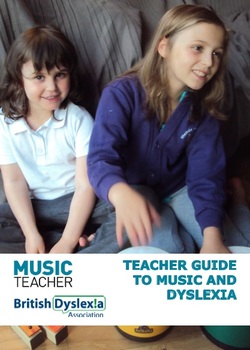|
You love music, love students, love piano, and would love to bring it all together by establishing a studio practise. Fabulous! Here's a basic list of considerations to help you out, and hopefully we'll meet at some professional event in the future.
Qualifications: Trinity, AMEB studio teaching diplomas; coursework in studio pedagogy via universities. Advertising: Free online; MTA; newspaper; local schools; word of mouth; biography, resume, recommendations; who/where is your market? Professional practise: Teaching philosophy/statement; networks eg MTA, Collegiate of Music Educators; online forums; blog/website; conferences/workshops/online courses. Financial: Pricepoint; how much do you want to earn? how often do you want to be paid? spreadsheets/attendance records; admin; accountant; insurance; superannuation; invoicing; receipts; student contacts/history records. Equipment: Instruments; maintenance; electronic/digital; computer; internet; online teaching equipment; furniture; teaching space; occ health/safety. Council: Permission home business; parking; toilet; access; noise; lighting; electricity; neighbours. Government: Tax; ABN; PAYG; RTA working with children check. Parents: Studio agreement; attendance policies; observation lessons; explicit pedagogy; reporting; quality of instrument and location for practising; expectations. Students: Books; practise policies; planning; relationship/rapport; expectations; goals; repertoire; performing, composing, musicology, aural; special needs. Scheduling events: Recitals; exams; recordings (eg YouTube channel, make a CD); nursing homes, shopping centres; fundraising practise drive. Scheduling teaching: Meals/breaks; hours open; weeks per year; holidays; public holidays; public calendar (iCal); babysitting.
1 Comment
Here's a link to my review on Griffin's Learning Strategies for Musical Success as published in The Studio (MTA NSW). I highly recommend the MTA and encourage serious instrumental teachers to join it: www.musicnsw.com.au
Here's a great short video by one of my personal favourites, Angela Hewitt, about the importance of slow practise. She especially mentions that in slow practise, we need to include everything e.g. articulation, dynamics, phrasing etc, just in the same way as when we play the same piece at a faster tempo.  The uni class I attended tonight was a great example of learning through observation rather than being *told* what should be learnt. The lecture was mostly in silence except for music which was created through demonstration/imitation, and the result was musically-meaningful performance/improvisation by students of differing musical ability. Our lecturer Nick Lane used Orff methods which not only taught us how to improvise with a piece of music (in this case, one of Nick's arrangements) but also demonstrated how to teach our own students to do this. It just goes to show how the Orff method can be used in any educational setting - in this case, teacher training, serving two purposes at once. Nick also used 'antennas beaters stance' when not playing, must be a standard Orff thing to do - comforting to see as I use that too! (Well, in one primary school we used 'unicorn beaters stance' as each student only had access to one beater each). Looking forward to next week's lecture.  I recently came across this very helpful guide for studio teachers who have students with dyslexia. The guide gives info about what dyslexia is, how to develop positive teacher/student rapport, inclusion of multi-sensory teaching methods, what to do with challenges such as performing, sightreading, and memorising. A lot of the tips are handy for all types of teachers and so can help all music students (inclusive education). The guide also contains information about examination requirements and adjustments. This is a British guide, so their info is about UK-based examination boards. The AMEB provide similar adjustments for students with learning disabilities. Teacher Guide to Music and Dyslexia AMEB Special Needs |
My BlogReflections/news on music, piano and music teaching, and anything else that pops up. Archives
October 2021
Categories
All
|
 RSS Feed
RSS Feed